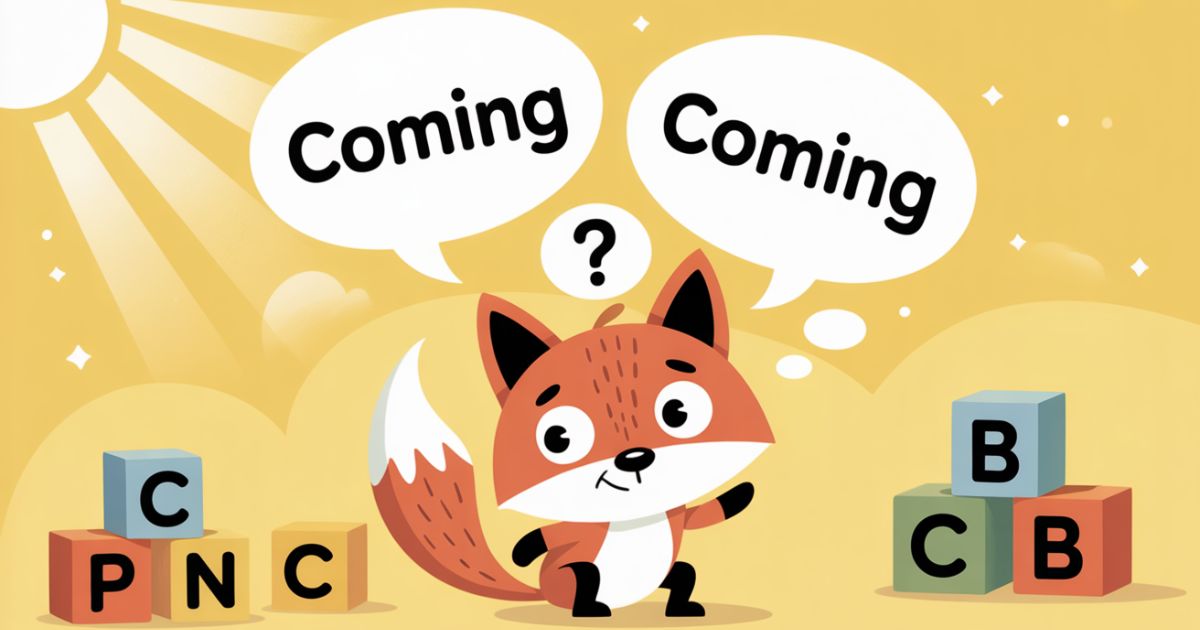The English language is full of spelling pitfalls, even for native speakers. One such example is the confusion between “comming” and “coming.” If you’ve ever found yourself pausing mid-sentence to ask, “Wait, is it spelled with two M’s?”, you’re definitely not alone. In this article, we’ll explore why “comming” is incorrect, why “coming” is the correct form, and provide real-life scenarios where such confusion might arise.
Why Do People Confuse “Comming” and “Coming”?
This confusion often stems from the rules around adding suffixes to base words. English spelling patterns can be deceptive. For instance, when we look at “swim” becoming “swimming”, we double the “m.” So naturally, some might assume “come” becomes “comming.”
But here’s the catch — English doesn’t always follow predictable patterns.
The base word “come” is a bit of an oddball. Despite ending in an “e,” when we add “-ing,” we drop the “e” and get “coming.” No extra “m” needed. Let’s explore why.
The Rule Behind the Correct Spelling
In English, when a verb ends in a silent “e,” and you’re adding a suffix that begins with a vowel — such as “-ing” — you usually drop the final “e.” For example:
- make → making
- write → writing
- come → coming
So according to this rule, “come” becomes “coming” — and never “comming.”
The confusion often arises from verbs that end in a short vowel followed by a single consonant like run → running or swim → swimming where the final consonant is doubled. But since “come” ends in a silent “e”, not a short vowel + consonant pattern, it doesn’t follow the doubling rule.
Examples of “Coming” in Everyday Use
Let’s take a look at some real-world scenarios to see how “coming” is used correctly:
Scenario 1: A Text Message
Incorrect: Hey, are you comming to the party tonight?
Correct: Hey, are you coming to the party tonight?
In casual writing like texts or social media posts, people often type quickly and don’t proofread. That’s where “comming” tends to pop up. But even in informal settings, using the correct spelling helps your message appear clearer and more polished.
Scenario 2: In an Email to a Colleague
Incorrect:
I’ll be comming to the meeting at 3 PM to share the latest updates.
Correct:
I’ll be coming to the meeting at 3 PM to share the latest updates.
In professional communication, misspelling words can undermine your credibility. Something as simple as spelling “coming” correctly adds polish and attention to detail.
Scenario 3: In a School Essay
Incorrect:
The storm clouds were comming in fast from the west.
Correct:
The storm clouds were coming in fast from the west.
Students often make this mistake when writing quickly under pressure. Teachers will usually mark this as a spelling error, even if the meaning is understood.
Why “Comming” Isn’t a Word (In Most Cases)
Let’s be clear: “comming” is not a standard English word. It’s not recognized by dictionaries, grammar tools, or spellcheckers — and for good reason. It’s simply a misspelling of “coming.”
You might find some rare exceptions in archaic documents or non-English contexts, but these are not relevant to everyday modern usage.
Common Spelling Pitfalls Similar to “Comming”
If you’ve made the mistake of typing “comming,” you’re not alone — and you’re probably not new to other spelling traps, either. Let’s look at a few similar examples that cause confusion:
Running vs. Runing
- Correct: Running
- Mistake: Runing (forgot to double the consonant)
Writing vs. Writting
- Correct: Writing
- Mistake: Writting (unnecessary doubling of “t”)
Hoping vs. Hopping
- These are both correct but have different meanings:
- Hoping means wishing for something.
- Hopping means jumping.
In this case, spelling actually changes the meaning, so it’s even more important to get it right.
Tips to Avoid Spelling Errors Like “Comming”
Here are some simple strategies to help you avoid these kinds of mistakes in the future:
1. Learn the Pattern Rules
Understanding when to drop the “e” and when to double a consonant can go a long way. Practice with a list of verbs and how they change with different suffixes.
2. Say It Out Loud
Reading your sentence aloud often helps catch awkward spellings. If something looks off when you speak it, it probably is.
3. Use a Spell Checker – But Don’t Rely on It
Spellcheck is helpful, but not foolproof. Some misspellings might slip through if they resemble actual words or names. Be sure to proofread manually.
4. Keep a List of “Tricky Words”
Maintain a personal list of words you often get wrong like “coming,” “definitely,” or “accommodation.” Reviewing this list now and then builds memory retention.
Final Thoughts: Keep “Coming” Back to the Basics
Spelling can feel like a challenge, especially with a language as quirky as English. But when it comes to “comming” vs. “coming,” the answer is clear: “Coming” is the correct form. The mistake is common, but easily avoided once you know the rule behind it.
Language mastery isn’t about never making mistakes it’s about learning from them and improving. The next time you’re typing an email, writing a story, or crafting a tweet, remember: Drop the “e,” keep one “m,” and you’ve got it right.


